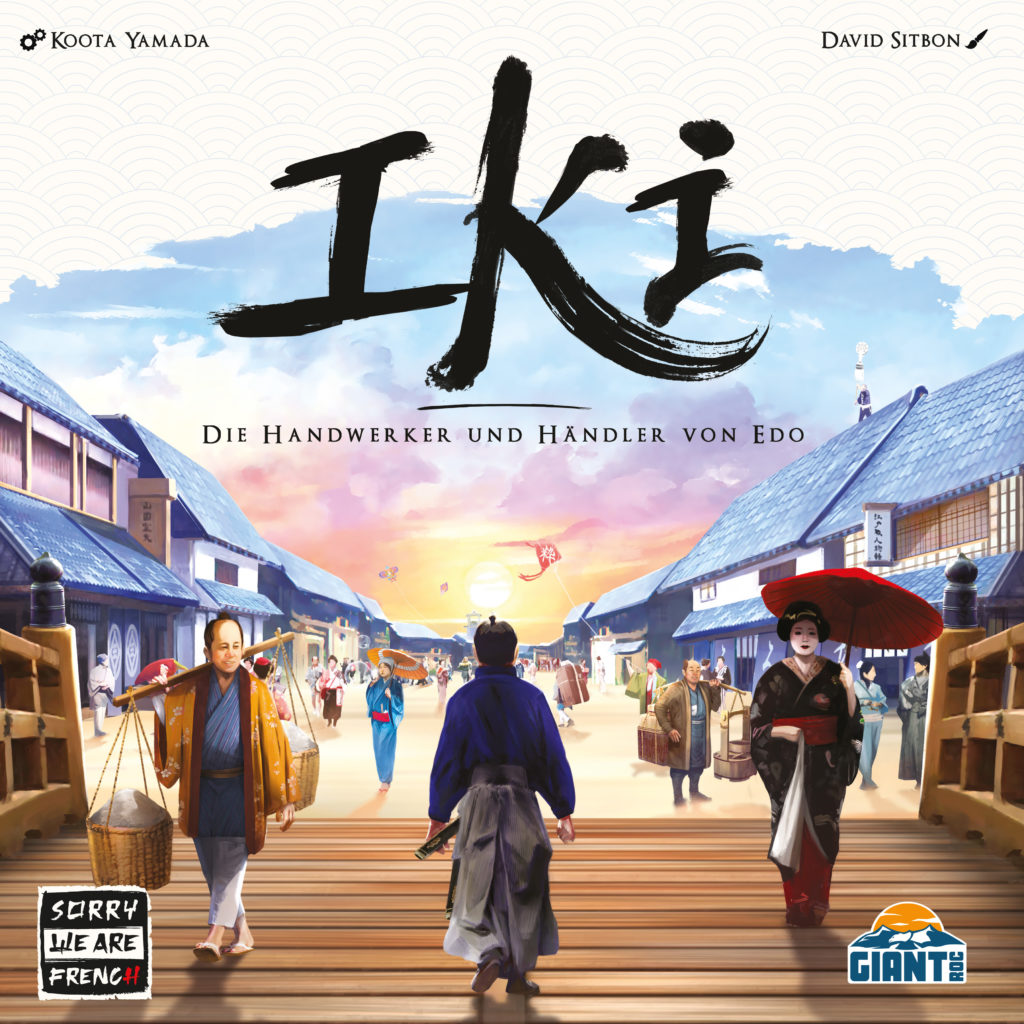
In the historic city of Edo – present-day Tokyo – you will weave your way through the market, activating the stalls you stop by to collect resources. If you purchase from your opponents’ businesses, however, you will increase their employees’ experience who will then make more profit and be able to retire earlier. The turn order is linked to how far your characters can travel: if you’re in a hurry to reach a distant shop, you’ll have to wait to recruit new character cards later on. You can’t neglect fire protection either: a fire will break out every few rounds, which can mean losing your buildings. Or will you deliberately risk exposure to the flames in the hunt for more profit?
You are currently viewing a placeholder content from YouTube. To access the actual content, click the button below. Please note that doing so will share data with third-party providers.
Jury statement
Embedded within its historical setting, “Iki” is unusually interactive for a game of its genre: visiting other players’ shops will give them bonuses, and to attract more customers you need to offer popular wares. The innovative use of the turn order mechanic is just as compelling as the dynamic development of options on the very atmospheric game board. The elegantly interlocking mechanics fit well with the eponymous city’s aesthetic ideal.

